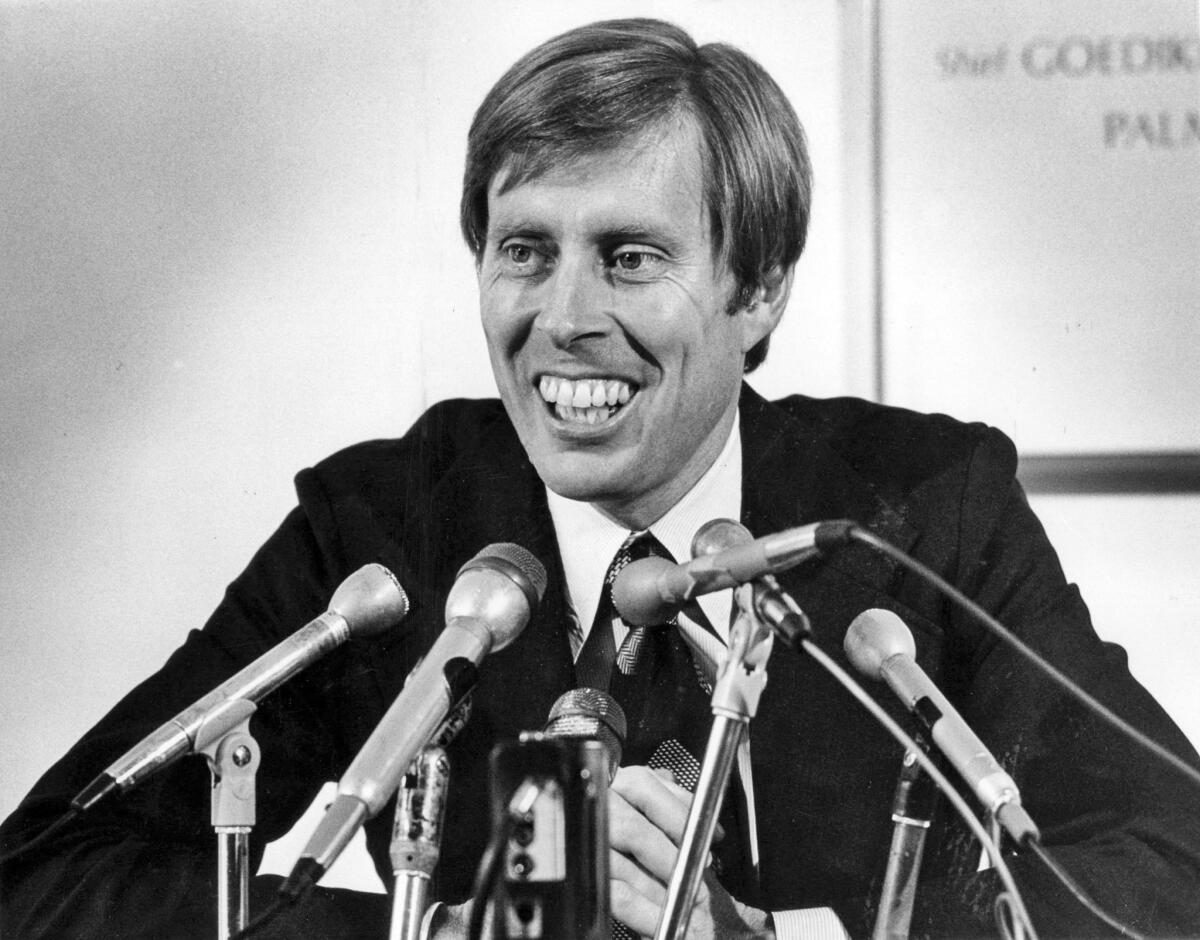The Times catches up with former Sen. John Tunney

- Share via
It’s been more than three decades since Sen. John V. Tunney (D-California) left Washington. After his narrow 1976 defeat by Republican S.I. Hayakawa, the then-42-year-old former senator joined one of Los Angeles’ most politically connected law firms before gradually slipping from the public eye.
But that’s not to say Tunney has retired from causes he has long celebrated. In a recent telephone interview with The Times from his home in Sun Valley, Idaho, Tunney talked about his long, vigorous life after leaving office, lived mainly (and apparently quite happily) out of the political spotlight.
Tunney said he and his wife, Kathinka, who also maintain homes in Los Angeles and New York, enjoy traveling abroad; their latest international journey was a trip to South Africa earlier this year.
At home in Sun Valley, Tunney, who turned 79 in June, skis, fly fishes, bikes and hikes. He reads books and uses the Internet to stay up to date.
“I try to keep up with what’s going on in the world around us,” Tunney said, then quipped, “It’s hard to do that in Idaho.”
The son of former heavyweight champion Gene Tunney and his New York socialite wife said he also stays active in environmental causes. That was one of several issues that he worked on during his three terms as a congressman from Riverside and six years in the Senate. He had leadership roles, for example, in passing the original Endangered Species Act and in extending and expanding the Voting Rights Act in 1975.
Tunney is on the board of Living With Wolves, a nonprofit that aims to raise public awareness about the species and its importance to healthy ecosystems.
He also chairs the board of the Hammer Museum at UCLA, a labor of love that brings him to Los Angeles frequently. He spends time with the two of his adult children who live here. And he gets in touch with friends at his former law firm, Manatt, Phelps and Phillips, known when he was a senior partner there as Manatt, Phelps, Rothenberg and Tunney.
Looking back on his time in politics, Tunney said he had no regrets and counted his work on environmental and civil rights issues among his biggest contributions.
“I got great pleasure from it,” he said of his work in Congress.“I absolutely enjoyed the work and the challenges.”
But he lamented the sharp partisanship that has taken hold in politics.
“It’s apalling what’s happening in Congress today, that these men and women who are elected to get things accomplished are not even able to get to the point of an up or down vote,” Tunney said, calling the Washington atmosphere “hostile.”
“We did get a lot done,” he said of his time in Washington, and he attributes much of that to a spirit of bipartisanship that enabled officials who held very different views to reach accommodation on key issues.
ALSO:
Final vote tally requires runoff election in 16th Senate District
Brown sets Sept. 17 election date for two L.A. legislative seats
Two veteran Sacramento lawmakers win L.A. City Council seats
Twitter: @jeanmerl
More to Read
Sign up for Essential California
The most important California stories and recommendations in your inbox every morning.
You may occasionally receive promotional content from the Los Angeles Times.











